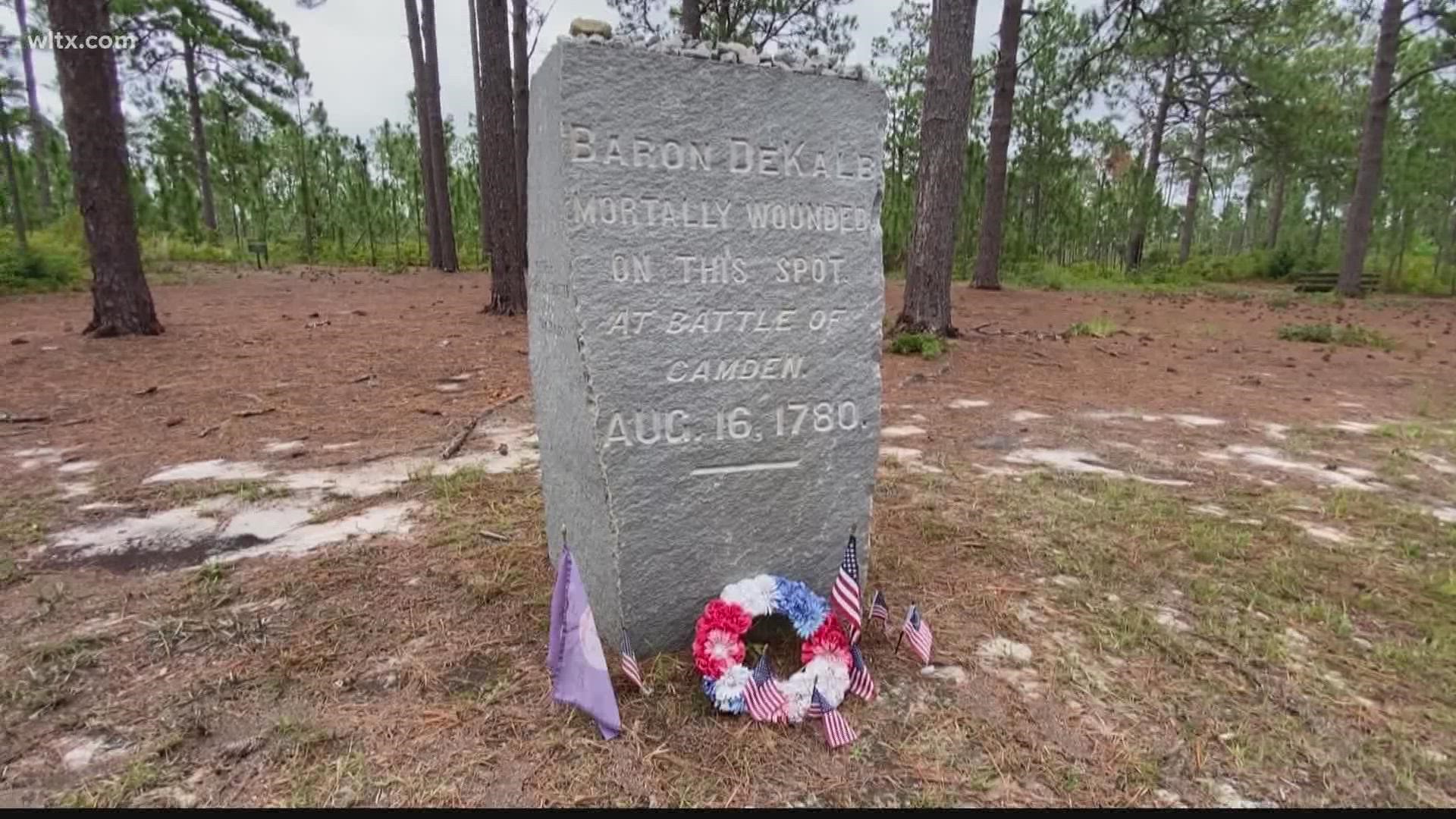CAMDEN, S.C. — On Veterans Day 2022, while we celebrate the brave service of all veterans, the South Carolina Battleground Preservation Trust (SCBPT) announced a significant historic discovery made at the Revolutionary War Camden Battlefield in Kershaw County.
The Trust, acting on behalf of Historic Camden, contracted to assemble a team of archeologists comprised of individuals from the South Carolina Institute of Archaeology and Anthropology, the University of South Carolina, and the S.C. Department of Natural Resources (SCDNR). That team, along with biological anthropologists from Richland County Coroner's Office, have unearthed the skeletal remains and accompanying artifacts of 14 soldiers killed in the Battle of Camden on Aug. 6, 1780.
According to the Trust, the remains, some less than six inches below the surface in seven separate locations across the battlefield, were located during site research, carefully excavated, and removed over an eight-week period beginning in September.
Through preliminary field examination, the archeology team believes:
- Twelve bodies are Patriot Continental soldiers from either Maryland or Delaware.
- One is likely a North Carolina Loyalist.
- One served with the British 71st Regiment of Foot, Fraser’s Highlanders.
“This discovery is particularly significant to the history of our state and nation,” said Dr. Steven D. Smith, a research professor at the South Carolina Institute of Archaeology and Anthropology (SCIAA) and principal investigator for the project. “This is a rare opportunity to examine and analyze a large sample of Revolutionary War soldiers to get information about their health and diet, age, gender, and compare the forensic data to the historic record.”
SCIAA archeologist James Legg, who has conducted research on the Camden Battlefield for more than 40 years and led the onsite field team, said, “People visit battlefields like Camden, Cowpens, and Kings Mountain every day and don’t often consider that they are walking in unmarked cemeteries. The dead are still there."
The Richland County Coroner's Office is involved as it is one of only two coroner’s offices in the state with forensic anthropologists on staff. The office assisted in the final removal and transportation of the remains to the office in Columbia and will assist in the forensic study of the remains over the next five months.
The Trust supplied this information for historical context:
In 1780, Camden was the oldest and largest town in the Carolina backcountry. It was strategic to both the British Army, which occupied the town and the Patriots in the Revolutionary War. Following a series of strategic errors before and during the Battle of Camden, the Patriot army under command of Major General Horatio Gates was soundly defeated. Although the Battle of Camden was disastrous for the American cause, it ushered in changes in military leadership that altered the war’s course. After the battle, Major General Nathanael Greene was promoted to command of the Southern Campaign, and his leadership ultimately led to the evacuation of the British army from Charleston, South Carolina, in December 1782.
Planning is underway by SCBPT and Camden area partners for re-interment ceremonies from April 20 to 22, 2023, in Camden.
“When these young men marched into the darkness on that summer night in 1780, they did so out of love for their country despite the consequences that may befall them," Doug Bostick, the CEO of SCBPT, said. Our intent is to lay them to rest with the respect and honor they earned more than two centuries ago.”
"It's indescribable especially when you see the care that the forensic team is taking," says Cary Briggs, Director at Historic Camden when reflecting on the excavation process.

